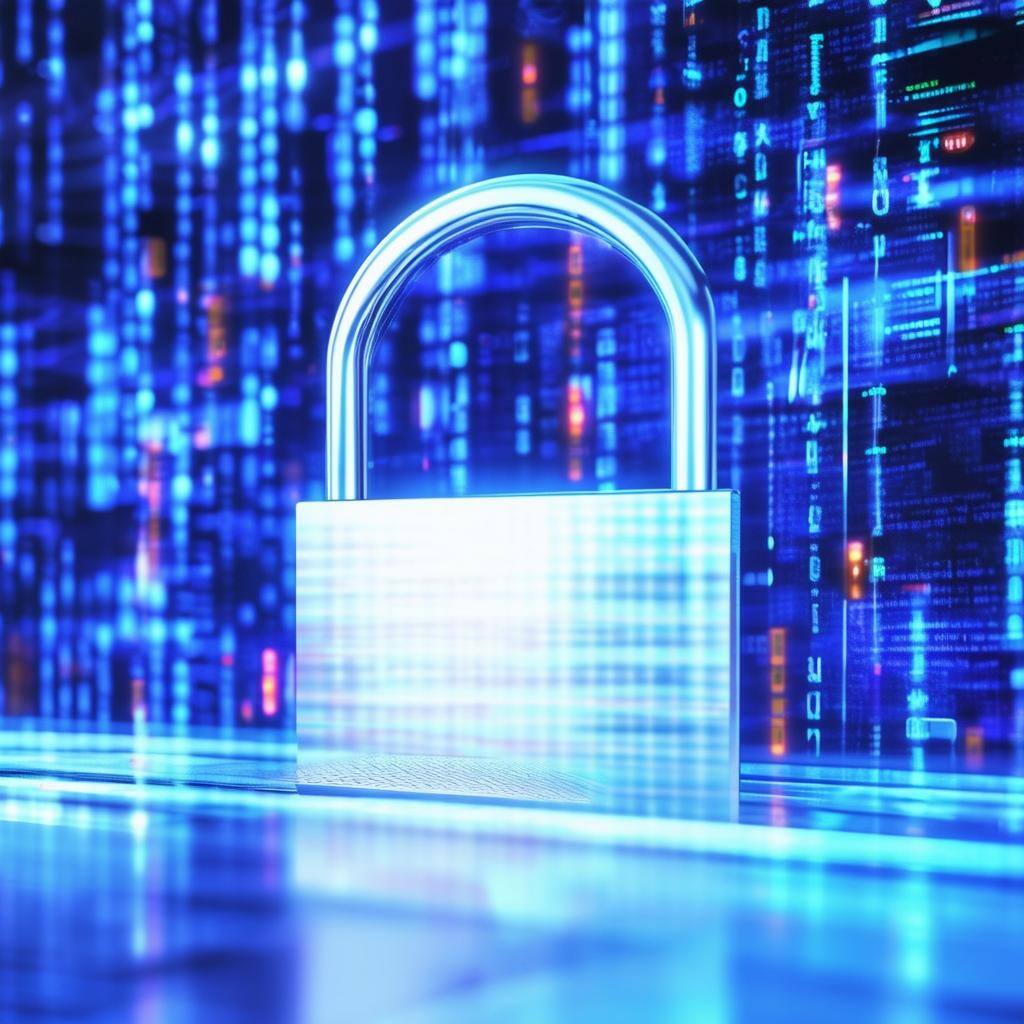Information Security in the Energy Sector and Its Impact on Business

In today’s hyper-connected world, the energy sector plays a critical role in powering economies and driving business operations. The energy infrastructure, from power grids to pipelines, is integral to the functioning of modern economies. However, this critical infrastructure is increasingly vulnerable to cyberattacks, making information security in the energy sector not only a technical issue but a significant business concern.
Information security in the energy sector has evolved into a critical necessity as cyberattacks become more frequent and sophisticated. The business implications of these threats are profound, affecting everything from operational efficiency to investment decisions. In this context, think tanks like the DiXi Group play a crucial role in analyzing energy policy, security, and investment, providing research and consulting services to safeguard the integrity of energy infrastructure and promote sound business practices.
In this blog post, we will explore the importance of information security in the energy sector, its impact on business, and how institutions like the DiXi Group contribute to ensuring the resilience of energy systems through strategic research and policy development.
The Growing Threat Landscape in Energy
The energy sector has traditionally been a highly regulated and controlled industry. However, with the rise of digitalization, the introduction of smart grids, the Internet of Things (IoT), and the integration of renewable energy sources, the sector has become more interconnected—and thus, more vulnerable to cyberattacks.
Common Cybersecurity Threats in the Energy Sector:
-
Ransomware Attacks: These involve the encryption of a company's data or critical systems, with the attackers demanding a ransom to restore access. Such attacks can lead to significant downtime, financial losses, and damage to a company’s reputation.
-
Phishing and Social Engineering: Attackers often use fraudulent communications to trick employees into revealing sensitive information or access credentials. These attacks can give hackers access to sensitive systems and compromise operational control.
-
State-Sponsored Attacks: Given the strategic importance of energy infrastructure, state-sponsored cyberattacks pose a significant risk. These attacks are often highly sophisticated and designed to disrupt national energy supplies, cause economic damage, or gain geopolitical leverage.
-
Insider Threats: Disgruntled employees or contractors with access to sensitive information can pose significant security risks. Insider threats can lead to data leaks or the intentional sabotage of systems.
The consequences of these attacks can range from operational disruptions to financial losses and even damage to national security. As energy infrastructure becomes more digitized, the need for robust cybersecurity frameworks grows more pressing.
The Business Impact of Cybersecurity in Energy
The energy sector’s increasing exposure to cyber threats has far-reaching business implications. Cyberattacks can cause direct financial losses through downtime, recovery costs, and regulatory fines, but the broader impact on business operations, customer trust, and investment strategies is often more substantial.
1. Operational Disruptions
Businesses in the energy sector rely on continuous operations. Any interruption, especially in critical systems like power generation or distribution, can result in significant financial losses. For instance, a cyberattack that disables a power grid could halt manufacturing, disrupt logistics, and cause widespread economic losses for businesses reliant on steady energy supplies.
2. Financial Losses and Fines
In the aftermath of a cyberattack, energy companies may face significant financial penalties. These include costs related to ransomware payments, data recovery, system restoration, and regulatory fines. In industries where compliance with regulations like the General Data Protection Regulation (GDPR) or the North American Electric Reliability Corporation Critical Infrastructure Protection (NERC-CIP) standards is required, failure to secure data can lead to hefty fines.
3. Loss of Trust and Reputation
Cybersecurity breaches erode trust between energy companies and their customers, investors, and partners. A single data breach or cyberattack can have long-term consequences on a company’s reputation, impacting customer retention and investor confidence. Businesses that fail to invest in robust cybersecurity frameworks risk being seen as unreliable or vulnerable.
4. Investor Confidence and Business Valuations
Cybersecurity is now a top concern for investors, especially in the energy sector where the stakes are particularly high. A company’s ability to safeguard its infrastructure from cyberattacks can significantly affect its valuation and investment attractiveness. Energy companies that can demonstrate resilience through advanced cybersecurity protocols are more likely to attract investment and maintain strong financial performance.
The Role of Think Tanks in Enhancing Energy Security: The DiXi Group
Given the complexity and importance of energy infrastructure, research institutions and think tanks play a pivotal role in shaping information security strategies. One such think tank is DiXi Group, an analytical center (think tank) engaged in research and consulting on information policy, security, and investments in the field of energy.
About DiXi Group
Founded in Ukraine, DiXi Group is at the forefront of research in energy policy, security, and regulatory reform. The organization conducts in-depth analysis of the energy sector, providing insights into how energy systems can be more secure and resilient. DiXi Group collaborates with stakeholders across government, industry, and civil society to promote best practices in energy governance and cybersecurity.
DiXi Group's Contributions to Information Security in Energy
-
Policy Development: DiXi Group works with governments and industry leaders to develop policies that strengthen the cybersecurity infrastructure of the energy sector. By conducting research and providing recommendations, the organization helps shape the regulatory environment, ensuring it is responsive to evolving cyber threats.
-
Risk Assessments: DiXi Group performs risk assessments to identify vulnerabilities in energy infrastructure and provides strategies for mitigating these risks. Their reports offer critical insights into the potential impacts of cyberattacks and the best practices for preventing them.
-
Promoting International Cooperation: In a highly interconnected energy sector, cyber threats often transcend national borders. DiXi Group fosters international cooperation by organizing forums and roundtables where experts from various countries can share their experiences and collaborate on security solutions.
-
Consulting on Investments in Energy Security: By advising businesses on how to invest in secure energy infrastructure, DiXi Group helps companies make informed decisions about where to allocate resources for the greatest security impact. This ensures that investments in energy technologies also prioritize cybersecurity measures.
Through its comprehensive approach to research, consulting, and advocacy, DiXi Group plays a critical role in ensuring that the energy sector remains resilient to cyber threats. By linking energy policy to security and investments, the organization helps businesses make more informed decisions, aligning security efforts with long-term business goals.
For more information you can visit https://dixigroup.org/
Securing the Future of Energy Through Business Collaboration
In an era of increasing cyber threats, the energy sector cannot afford to overlook information security. Collaborations between businesses, governments, and think tanks like DiXi Group are essential to maintaining secure energy systems. For businesses, this means prioritizing cybersecurity investments, conducting regular risk assessments, and staying compliant with industry regulations.
The future of energy security lies in the convergence of technology, policy, and business. As energy infrastructure becomes more interconnected and digitized, businesses must take a proactive approach to cybersecurity, ensuring their operations are protected from emerging threats. In this complex landscape, the role of think tanks like DiXi Group becomes even more critical, offering the research and guidance needed to safeguard one of the world's most vital sectors.
Conclusion
Information security in the energy sector is no longer just a technical challenge but a fundamental business concern. The threats posed by cyberattacks can have far-reaching impacts, from operational disruptions to financial losses and damage to a company's reputation. As the energy sector becomes more reliant on digital technologies, robust cybersecurity measures must be integrated into every aspect of business operations.
Organizations like DiXi Group are leading the way in providing research, consulting, and policy recommendations that bridge the gap between energy security and business success. By collaborating with think tanks and investing in cybersecurity, energy companies can protect their assets, build trust with stakeholders, and ensure long-term resilience in an increasingly volatile landscape.
Related Posts
Join the movement.
Your Entourage journey starts here. Join Australia's largest community of over 500,000 business owners and entrepreneurs, and receive instant access to exclusive content and updates delivered straight to your inbox.




